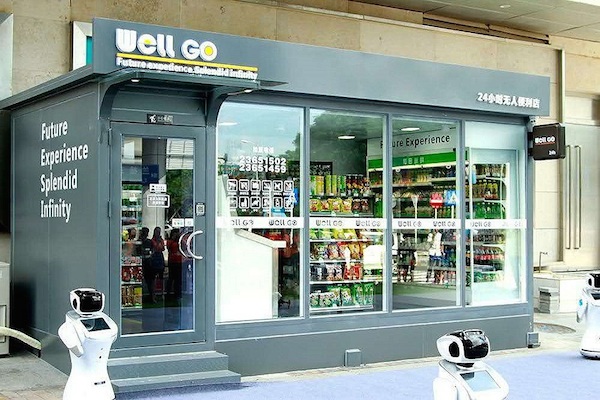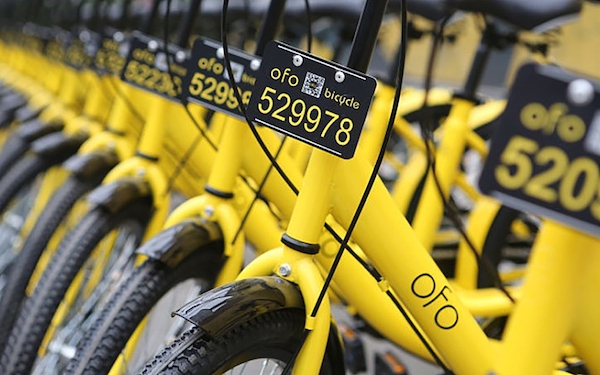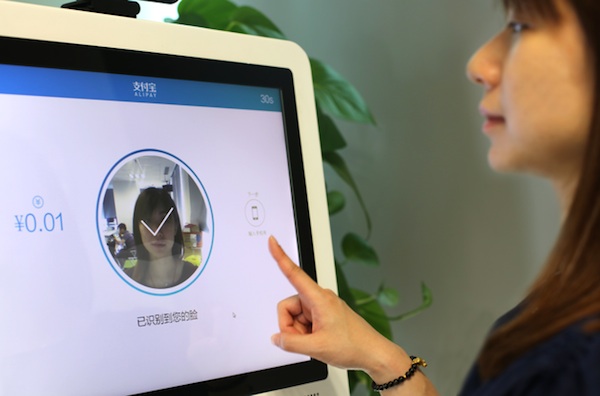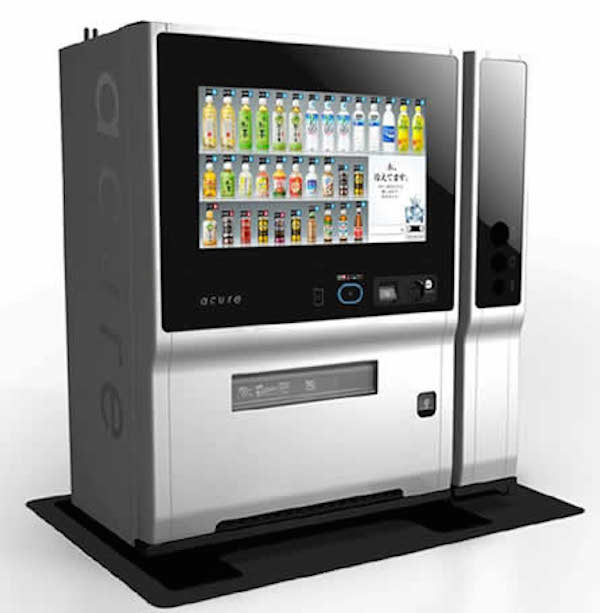Secure your place at the Digiday Media Buying Summit in Nashville, March 2-4
E-wallets, unmanned stores and more: How retailers are innovating in Asia

This article appears in the latest issue of Digiday magazine, a quarterly publication that is part of Digiday+. Members of Digiday+ get access to exclusive content, original research and member events throughout the year. Learn more here.
Retail has been falling in the U.S. But across the Pacific Ocean, there are many retail innovations in Asia, ranging from product display to payments to logistics. Here’s how the store of the future is being rethought in China, South Korea, Japan and India.
China’s unmanned stores: Staffless stores like EasyGo and BingoBox are an emerging phenomenon in China.

Super-fast food delivery services: Platforms like Meituan and Baidu Waimai can usually deliver food to consumers in around 10 minutes and allow them to track their delivery on mobile. Seamless and Grubhub would be considered “too slow” by Chinese standards.

Mobile bike-sharing: Two startups, Mobike and Ofo, offer station-free bike sharing services in cities like Beijing and Shanghai.

Facial recognition payment: Alibaba-owned fintech company Ant Financial tested a facial recognition payment service called “smile to pay” with KFC in China this September.

South Korea’s 3-D shopping assistants: Physical stores like iClothing use three-dimensional scanners to scan shoppers’ bodies and create a 3-D avatar of them. Then, visitors can go to the physical store and virtually try on clothes with the avatar, skipping the fitting room.

Japan’s smart vending machines: These machines take a picture of shoppers and recommend drink choices to them based on their gender and age. Then, customers make their choice using a digital screen.

India’s e-wallets: India has more diverse mobile payments than China, where Alipay and WeChat Pay dominate. Paytm, Oxigen, MobiKwik and PayUmoney are among the major mobile payment services in India.

More in Marketing

Pitch deck: Why Amazon believes its premium streaming inventory is worth the money
Amazon is pitching its DSP to make the case.

In Graphic Detail: The state of the marketing agency sector
Revenue figures from Omnicom, Publicis and Havas, and new employment stats, offer a snapshot on a quickly evolving industry.

Future of Marketing Briefing: The mental gymnastics of principal media
Welcome to the psychological CrossFit class of modern marketing. Here’s how marketers are learning to move through it.








